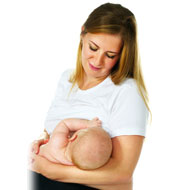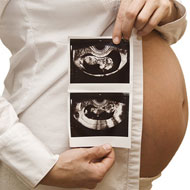- General Articles
- General Pregnancy Questions
- Baby Growth
- Pregnancy Diet
- Miscarriage
- During Pregnancy
- Twin Pregnancy
- Toddler Meals
- Home Remedies During Pregnancy
- Breastfeeding
- Pregnancy Week By Week
- Pregnancy Tests
- Ectopic Pregnancy
- Pregnancy Signs and Symptoms
- Pregnancy Stages
- Potty Training
- Fetal Development
- Preschooler
- Postpartum Depression
- Toddler Illness
- Baby Care
- After Pregnancy
- Molar Pregnancy
- During Delivery
- Beauty and Style
- Pregnancy Clothing
- Preconception
- Fertility
Alternate Methods Of Breastfeeding During Pregnancy
Many moms worry about the safety breastfeeding their babies during their subsequent pregnancy. Some mothers fear that breastfeeding a baby during pregnancy may affect the development of the baby in the womb. Others fear that their breasts will not be able to produce enough milk to feed both babies. These are all irrational fears. Pregnancy is no reason to discontinue breastfeeding and it will not cause your unborn baby any problems whatsoever.
In fact, many mothers continue not only to nurse while they are pregnant but also to "tandem nurse", that is, breastfeed both their older as well as the newborn child.
Your body can easily provide enough nutrition for both your unborn and your newborn child. All you need to do is eat a healthy, well balanced diet.
You may, however, need to eat more to meet the increased requirements of your body. Your doctor or nutritionist can prepare a diet plan for you that will take into account your personal tastes and preferences. All you need to do is follow the plan and you should have no trouble.
There are some things that you should be aware of if you have decided to nurse your baby through your pregnancy. They are:
- Your breasts and nipples will get more tender during your pregnancy. Switching your baby’s position or switching to another breast can help alleviate any feelings of discomfort.
- Your milk supply may diminish. This may happen during the second trimester. In such cases you will need to start supplementing if you feel that your baby is not getting enough milk.
- Towards the end of pregnancy, your baby may not enjoy the breast milk as much. Verbal toddlers sometimes announce this fact. This is because your breasts have started producing colostrum, which is thicker and has a different taste from regular breast milk. This could be an opportunity for you to begin the weaning process.
- Breastfeeding during pregnancy may produce some uterine contractions but this is normal and is nothing to be worried about. Unless your doctor advices otherwise it is safe to continue to do so.
Methods Of Breastfeeding
- The methods of breastfeeding vary and there are many positions to choose from. In the initial stages of your pregnancy choose whatever position you find comfortable. It is best to sit up instead of slouch. Pointing the breast downwards will help the flow of milk.
- The cradle hold may be employed if you are sitting up. It involves cradling your baby in your arm with his or her head lying in the crook of your arm and stomach against yours. Bring his or her head up to your breast and lightly brush your nipple against the lower lip.
- If you prefer, you may employ the cross-cradle hold. Cradle your baby in your arm again with your tummies against each other. Your other hand should be supporting the neck and the base of the head. Tuck your baby’s lower arm out of the way and bring the mouth close to your breast.
- If you find it uncomfortable to support the baby’s weight on your abdomen, then you should employ the football hold. This involves supporting your baby’s head with your hand at the base of the neck and tucking the legs and body under your arm so that the baby’s weight is supported by your arm and not your body. This method is useful during the second and third trimesters when your abdomen has grown big.
- When you’re tired and need to rest or prefer to lie down, then you can employ the side lying position. Lie down side by side with your baby so that your stomachs are touching. Lift your breast upwards and bring your baby’s head close to the nipple.
You may use any or all of these methods at different times during your pregnancy. Consult your doctor should you have difficulty with any aspect of breastfeeding.
Read more articles from the Breastfeeding Category.



 7 Must-Haves Before Your Baby Arrives
7 Must-Haves Before Your Baby Arrives Bonding Games for Babies
Bonding Games for Babies DIY Baby Bath Towel Apron
DIY Baby Bath Towel Apron Common Late Pregnancy Fears
Common Late Pregnancy Fears